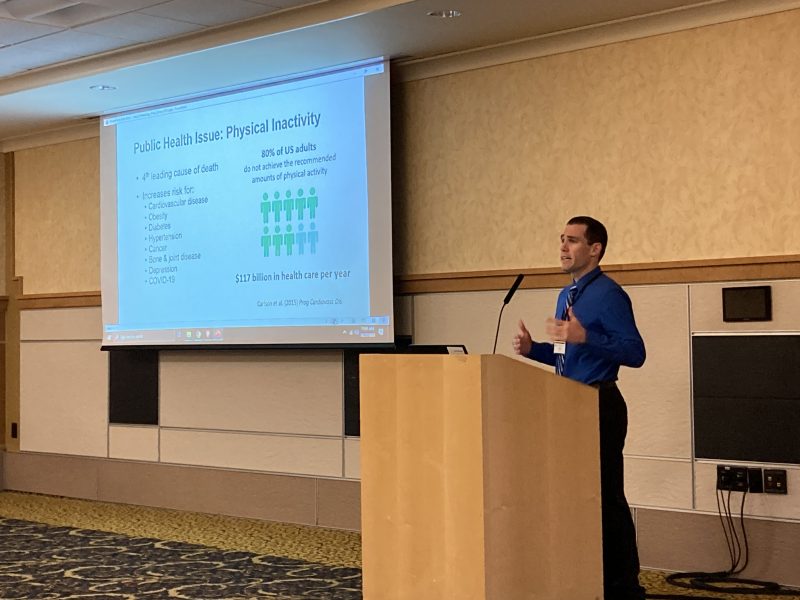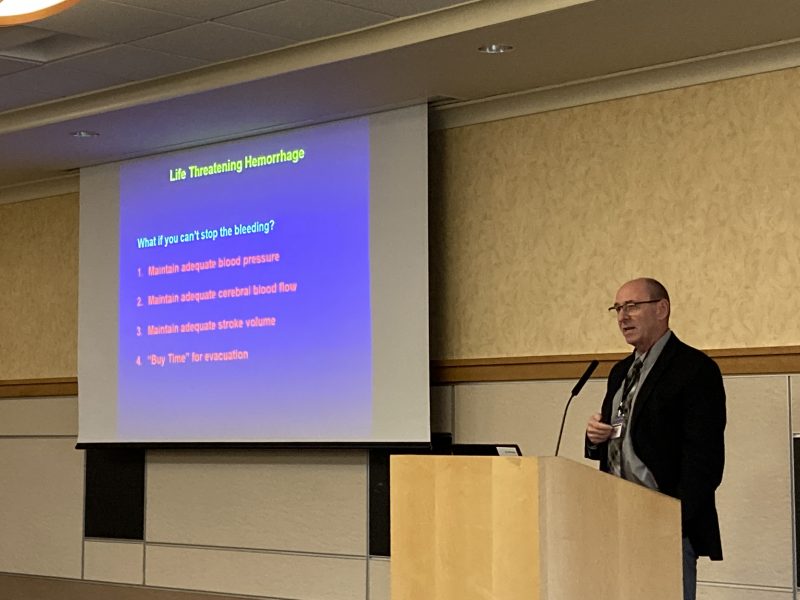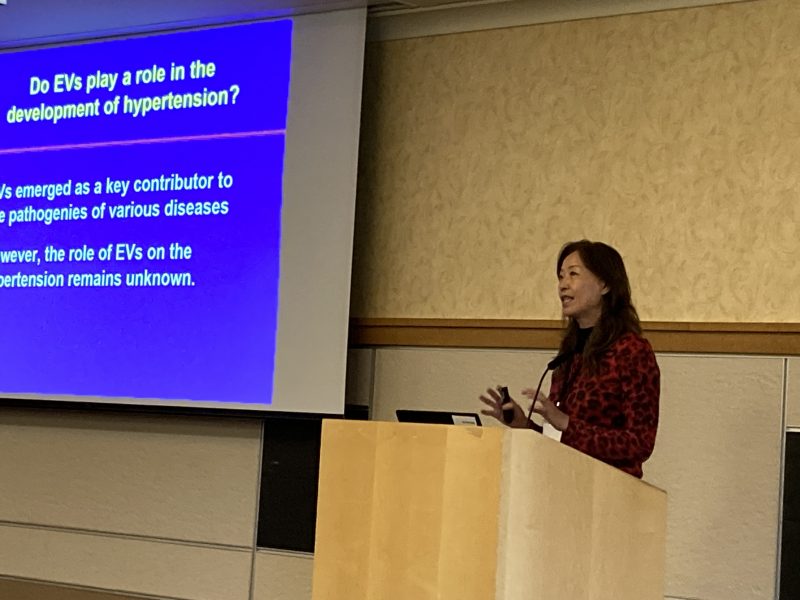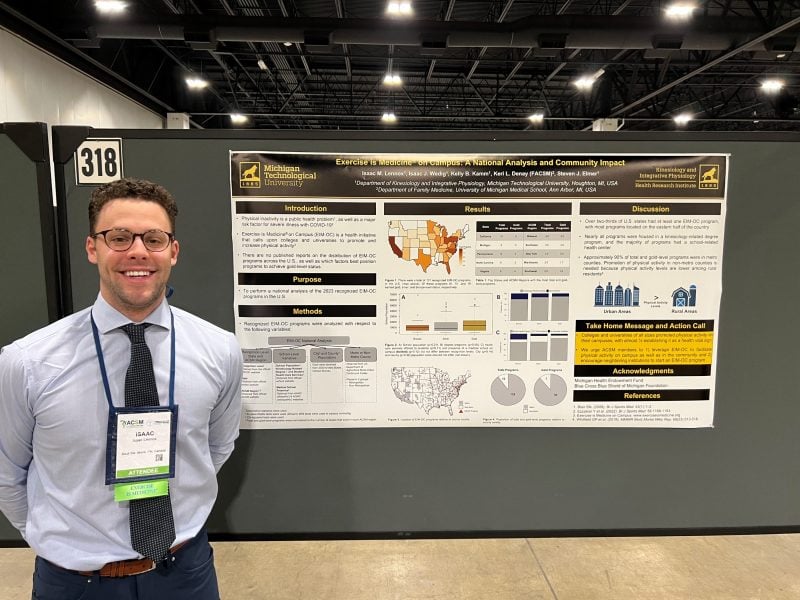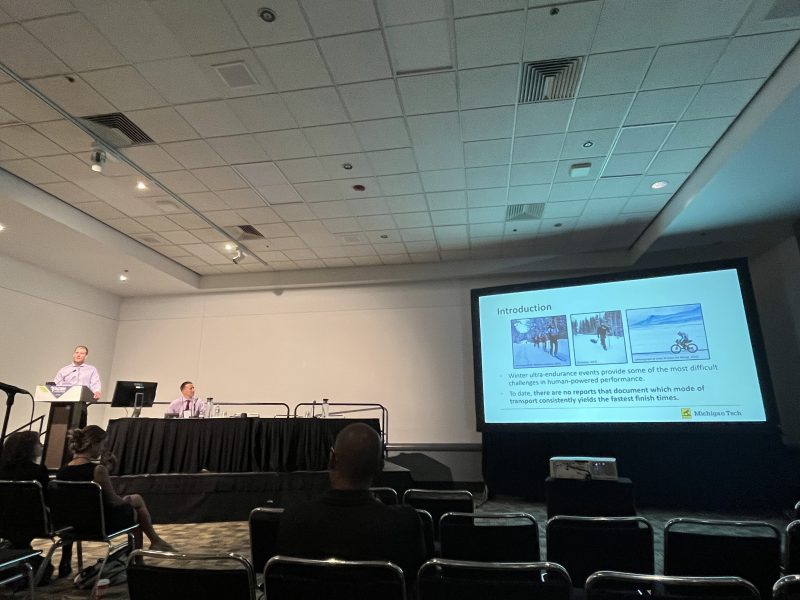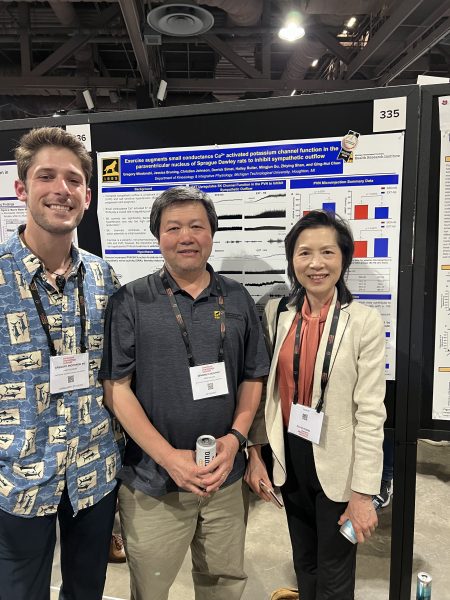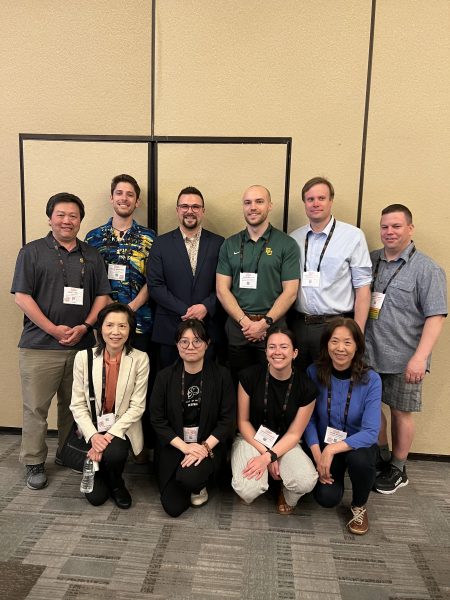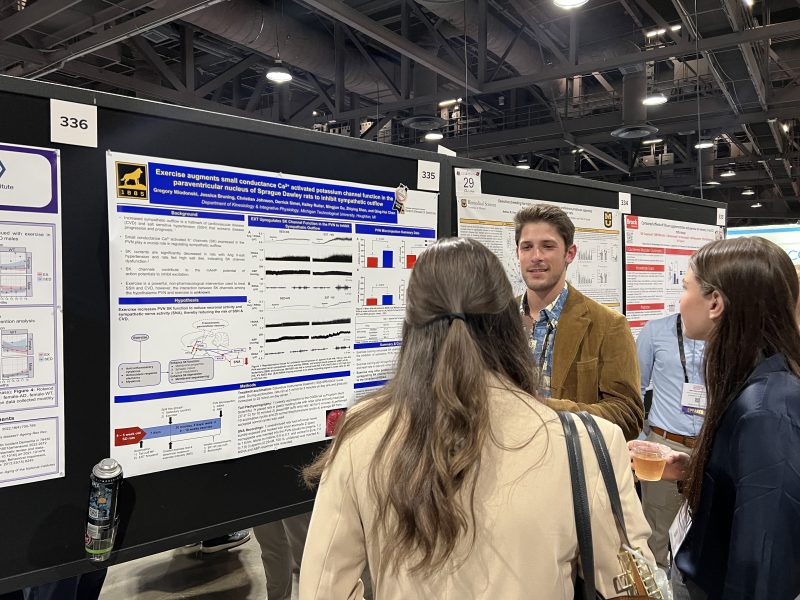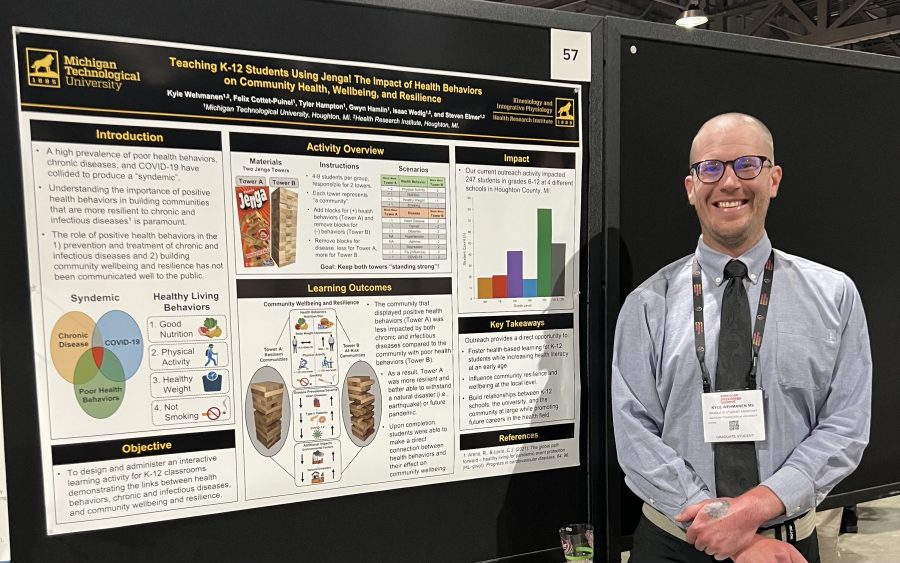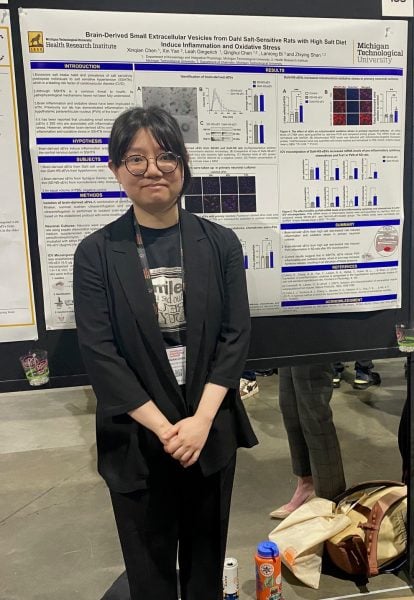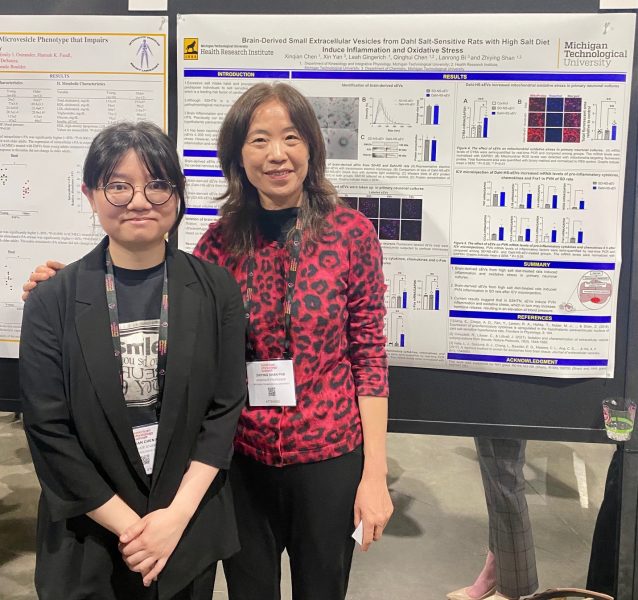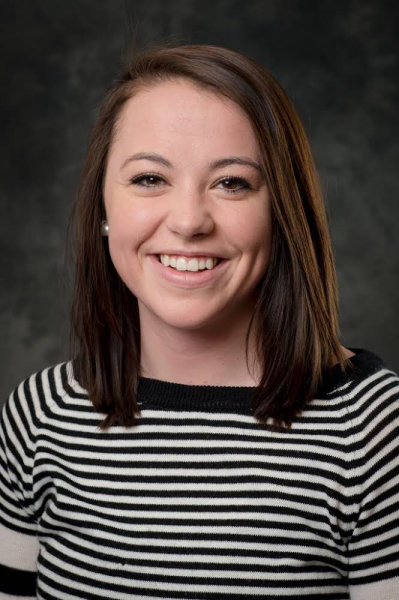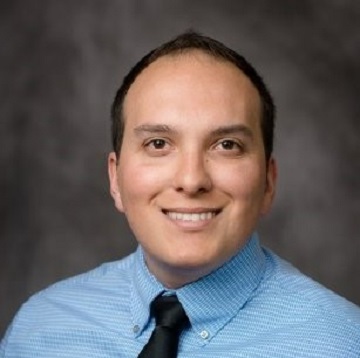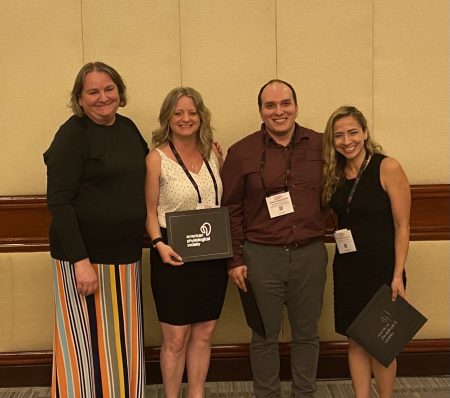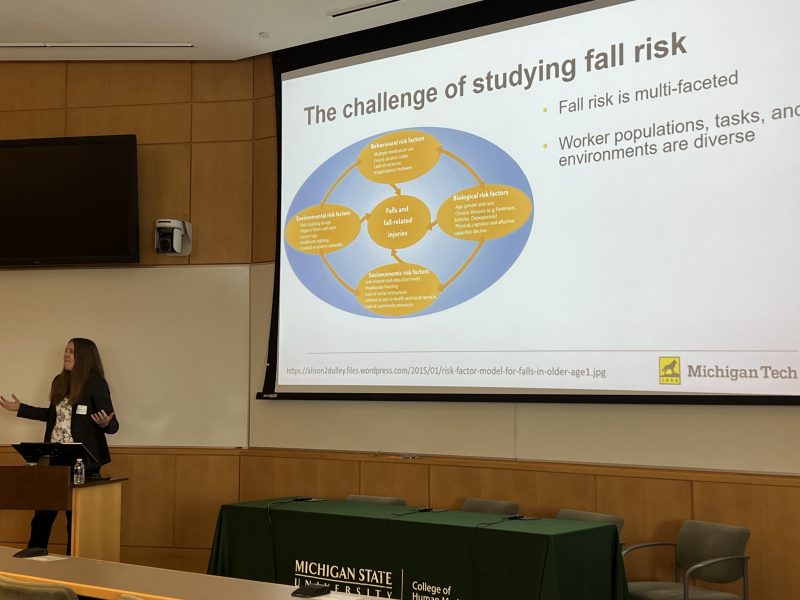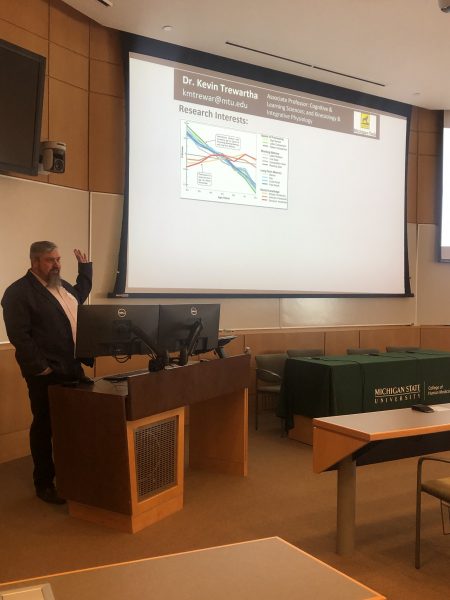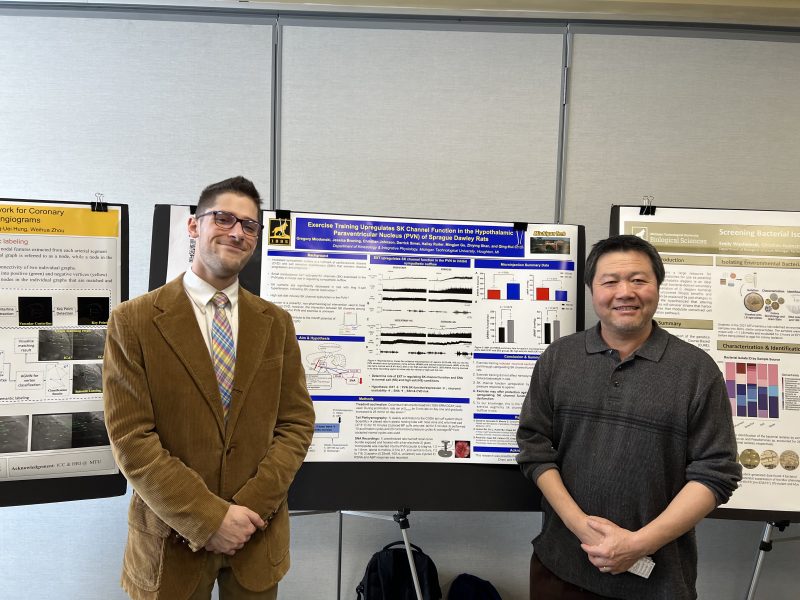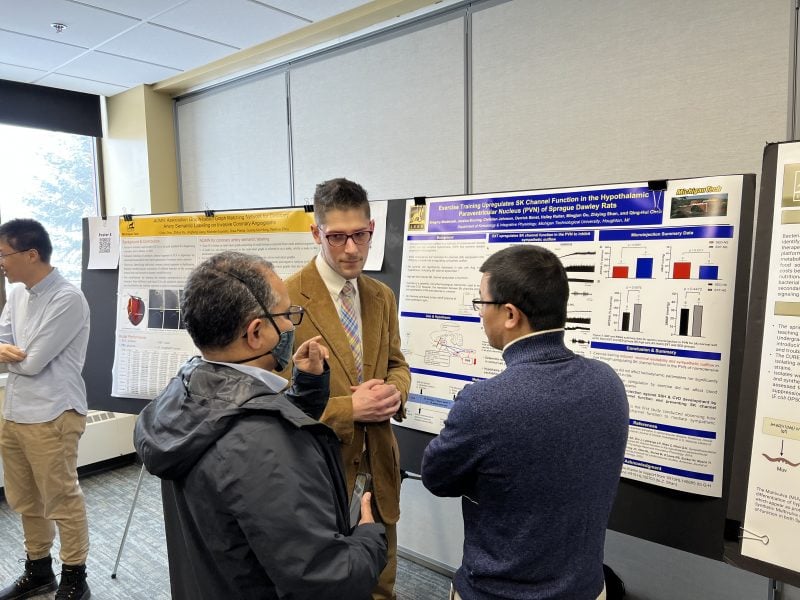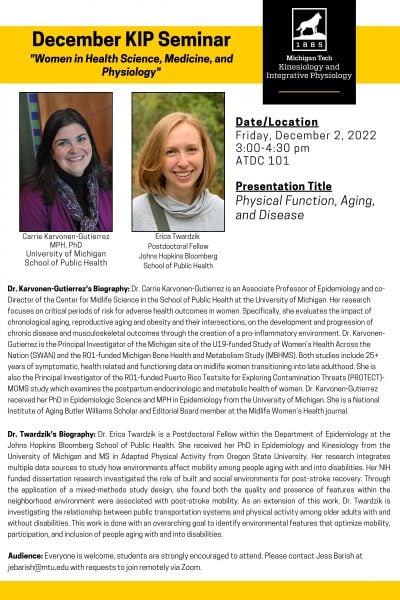On Friday, October 27, 2023, Dr. Steve Elmer, Dr. William Cooke, and Dr. Jenny Shan from the KIP department presented at the Engineering The Future of Human Health II: Collaborative Research Symposium held on the MTU campus in the Memorial Union Building. This is the second symposium being held in conjunction with Michigan State University. The inaugural symposium was held at MSU in March of 2022. Michigan Tech hosted this symposium with Dr. Cooke as a co-sponsor. “This is an important collaborative opportunity,” he commented.
Dr. Elmer and Dr. Cooke presented in the “Kinesiology and Physiology” session, and Dr. Shan presented in the “Metabolic Disease” session. Dr. Cooke also served as a moderator for the “Neural Control and Disease” session.
The symposium made the local TV6 news. More information and highlights about the event can be found on the station’s website.
